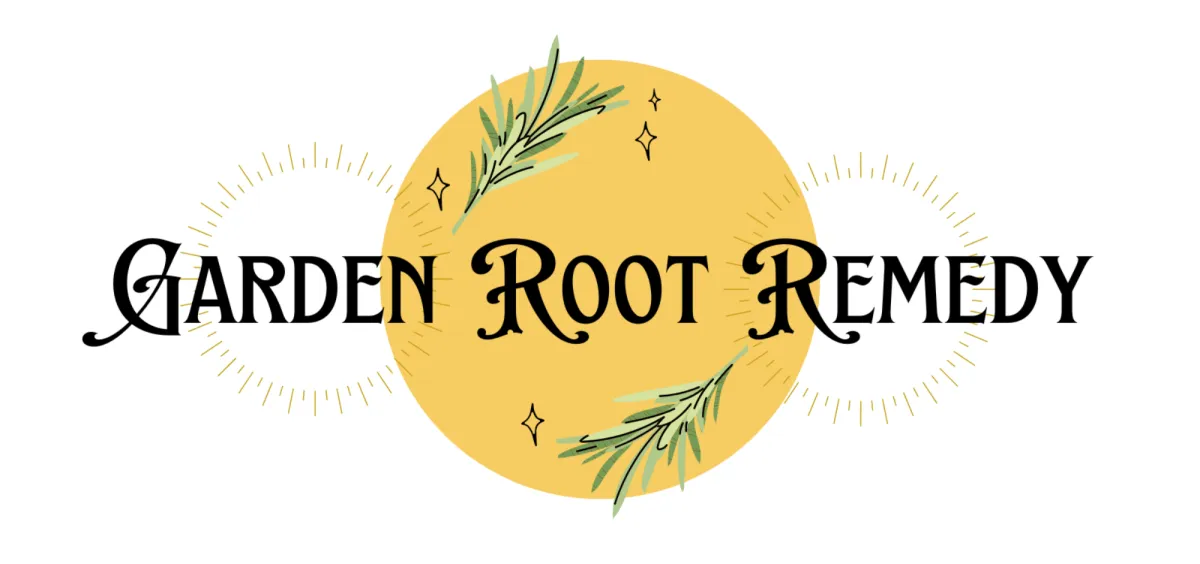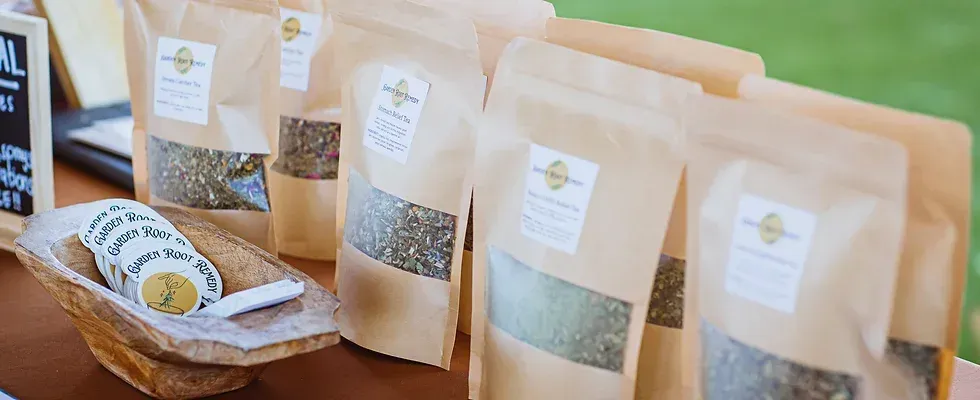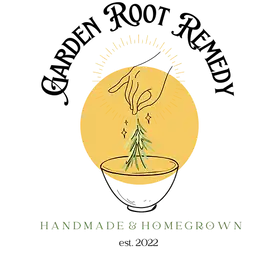
FAQs About Herbs
This page shares common questions and answers about herbs and herbal remedies at GRR. We want to make sure we can answer all of your questions or concerns with ease before you embark on adding our herbal remedies to your wellness routine.

Q: What is an herb?
A: An herb is a plant or plant part used for its scent, flavor, or therapeutic properties.
Q: What is herbal medicine?
A: Herbal medicine, also called botanical medicine or phytomedicine, refers to using a plant’s seeds, berries, roots, bark, leaves, and flowers for medicinal purposes. Herbalism has a long tradition of use outside conventional medicine within and outside the United States. Products of herbal medicine may also be referred to as herbal remedies.
Q: What is an example of herbal medicine?
A: Forms of herbal medicine products or remedies are: liquid tinctures or extracts, teas, capsules, oils, salves, poultices, and ointments.
Q: Does herbal medicine work?
A: Yes, indeed!! Herbal remedies have been used & studied for thousands of years. Herbal medicine has been around well before Western/Modern medicine that we know of today. Herbs contain naturally occurring chemical properties that mimic pharmaceutical medicine. Western medicine would fail to exist without the understanding and discovery of herbs, historically used in Easter/Chinese medicine. When used along with a healthy lifestyle, herbal medicine can be powerful & effective in your healing journey.
Q: Are herbal medicines safe?
A: Herbal medicines are those made with the active ingredients from plant seeds, berries, roots, bark, leaves, and flowers. There does have to be caution around the use of herbs for vulnerable people such as women who are pregnant, nursing mothers, and infants. Your clinical herbalist should be knowledgeable about those cautions, as well as what herbs can and cannot be used in specific populations. Some prescription medications are also contraindicated with herbal medicine. Herbal medicines will have an effect on the body and can be potentially harmful if not used correctly in conjunction with pharmaceuticals.
Q: Should I talk to my healthcare provider before consuming herbs?
A: Always be up front with your healthcare provider if you are taking or considering herbal medicine. Never stop taking prescribed medications without discussing it first with your healthcare provider.
Q: Is herbal medicine effective?
A: When used correctly, herbs can help treat a variety of conditions, and in some cases, have significantly fewer side effects than some conventional medications. Herbal medicine aims to return the body to a state of natural balance so that it can heal itself.
Q: How long does it take for herbal medicine to work?
A: The effects of medicinal herbs take time, and usually around 2-3 weeks they will build up strength within the body. Everyone’s body will react and adjust differently to herbs.
Q: What does the bible say about herbs?
A: Genesis 1:29 - Then God said, “I give you every seed-bearing plant on the face of the whole earth and every tree that has fruit with seed in it. They will be yours for food.”
Q: What are the positive effects of herbal medicine?
A: Herbal medicines are generally gentler on the body. When taken at the recommended doses, natural treatments (herbal medicine) result in fewer side effects. By using a natural herbal remedy instead of a pharmaceutical one, you may be able to reduce your reliance on synthetic medications and avoid their possible side effects.
Q: Can herbs draw out toxins in the body?
A: Yes, herbs can “detoxify” or draw out toxins in the body. Think of it as “spring cleaning” for the body. Heavier foods are eaten during the winter months due seasonal availability. Many are not as active during the winter months. The idea of a spring detox is meant to give your system a “reboot.” The idea is for your body to be refreshed, energized, and ready for spring and summer. Detoxing should also not only include eliminating processed foods and refined sugar and choosing more whole foods, but removing toxins and artificial ingredients from your diet will allow your body to do its job more efficiently. There are many ways herbs can help the detoxification process that your body does naturally. A clinical herbalist can help you identify herbs that can aid in “detoxifying” your system which will lead to a healthier more balanced life. Signs your body is signaling that may need to include a “detoxification”:
Unexplained fatigue
Poor gastro-intestinal elimination
Skin irritation
Uncontrolled allergies
Poor immunity and repeated infections
Puffy eyes
Bloating and acidity
Lack of attention and focus
Q: Is one herbal form better than another?
A: No, herbs are beneficial in all mediums whether tinctures, salves, teas, poultices, etc. Herbs are used primarily in a targeting fashion and the delivery is taken into consideration.
Q: Can women consume herbs while pregnant or breastfeeding?
A: It depends on the herb. Pregnancy and lactation contraindications exist and will be determined and educated by your clinical herbalist.
Q: Is there a point where you can stop taking herbal medicine when symptoms resolve? And will the symptoms reoccur?
A: This question depends on the chronicity of the disease or illness we are attempting to treat. For acute illnesses such as a common cold, flu symptoms, cough, rashes, etc. the likelihood of having to continue on the herbs is low once the symptoms resolve. For chronic illnesses or long-term medication side effect treatment there may be consideration for maintenance dosing with herbal medicine in an effort to keep the disease process 7 symptoms stable and without “flares.”
Q: What is your process for creating herbal remedies?
A: With my 33 years of medical experience and years of treating patients as a Nurse Practitioner, I have been very thoughtful in creating herbal medicines knowing the many multiple disease processes, medical complications, and side effects of prescribed medications that can occur. It has taken me 2.5 years to create my herbal remedies and I continuously become more educated on herbs to adjust and personalize my herbal treatment for clients.
Q: How do you recommend someone to get started with herbs?
A: I recommend a consultation to first understand the full spectrum of a person's health history when chronic illness exists. It is difficult to treat a “symptom” without the full account of a person's health. Not only physical symptoms, but mental symptoms have to be taken into consideration when treating the “whole person.”
Q: How are tinctures taken?
A: Tinctures can be consumed orally directly with dropper bottles or added to water, coffee, tea, or other drinks to improve the taste of directly taking via dropper. Tinctures are very bitter and do not taste good. I try to add herbs like cinnamon, anise star, and cloves to help, but for some herbs these just don’t come through to make them more palatable.
Q: Can children consume or take tinctures?
A: Children can take tinctures depending on their current state of health and if on pharmaceuticals consideration for contraindications need to be made. Children can consume apple cider vinegar-based tinctures, but alcohol based are not recommended for children or infants.
Q: Why are Garden Root Remedy’s tinctures different from others on the market?
A: Garden Root Remedy makes tinctures that do not contain any glycerin or water. They are fully concentrated to get the most benefit from the herbal tincture. This will also allow for a faster response time to treat the target.
Q: Is it possible to consume “too many” herbal remedies?
A: Herbs in their whole form are not drugs. Balance is the key to using herbs for healing and wellness. There exists a possibility of a mild allergy type reaction. Similar to developing a food sensitivity or allergy response. We recommend that people consume all herbal remedies as instructed on the product labels and notify your clinical herbalist if sensitivities occur for formulation adjustments.
Have more questions? Visit our CONTACT page to submit any of your questions or concerns!
